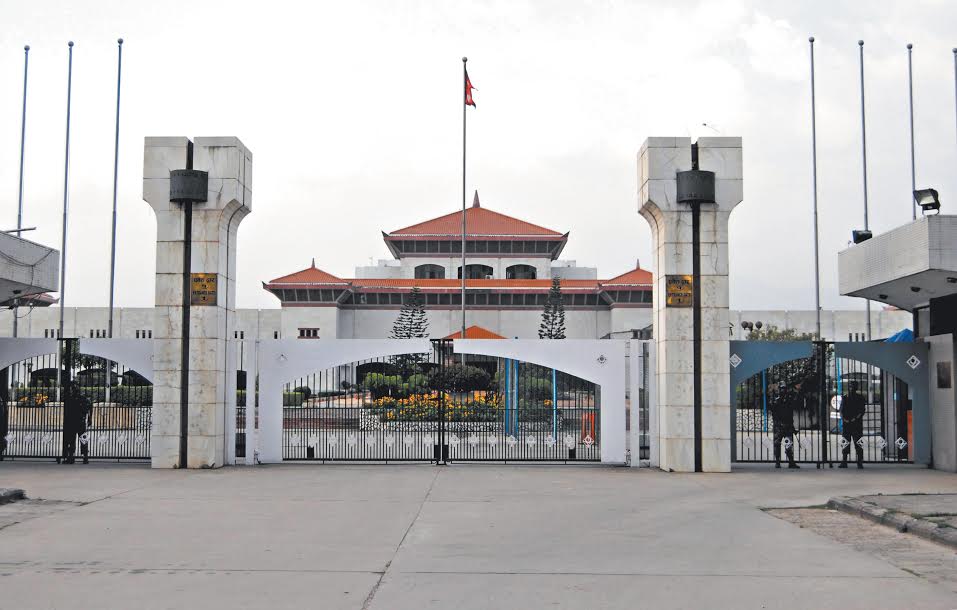New bill empowers jailer to enforce code of ethics in prison
Kathmandu, February 19
The Prison Bill tabled at the House of Representatives for clause-wise discussion empowers all jailers to develop and enforce code of ethics to be observed by staffers, security personnel and inmates or prisoners.
As per Section 47 of the bill, a jailer may put in place code of ethics to maintain law and order, security and discipline in a prison. “Anyone, who violates the code of ethics, shall be liable to fine not exceeding Rs 10,000,” it reads.
A person not satisfied with the fine imposed on him/her may move the concerned district court within 35 days of such a decision.
The bill stipulates a provision requiring at least one woman cop while deploying a police team for security of women inmates.
A jailer may request concerned provincial government or district administration office for necessary police staffers for prison security.
“If a person is sent to jail, prison administration shall have to conduct his/her health check-up prior to acceptance and maintain records of the inmate,” reads Section 11 of the bill. The government needs to establish a hospital on premises of a prison with capacity of more than 1,500 jailbirds, and a health post on premises of a prison having jailbirds ranging from 500 to 1,500, according to the bill.
If hospital or health post could not be established for any reason, concerned prison administration shall coordinate with the nearest health facility for health check-up and medical care of the prisoners.
Most of Nepalis and foreigners held in ‘correctional’ facilities suffer higher rate of illness compared to the general population due to overcrowded prisons.
As many as 74 jails with total capacity of just 15,466 persons have been crammed with more than 23,000 prisoners, according to the Department of Prison Management.
It requires prison administration to accommodate female and male prisoners in separate buildings.
According to the bill, there shall be separate buildings for female and male jailbirds in each prison.
If it is not possible to make arrangement of separate buildings for female and male jailbirds, they may be confined on separate floors of the same building.
There shall be separate toilet and bathroom facilities for female and male jailbirds. Prison administration shall also confine sexual minorities, jailbirds infected with communicable diseases, those mentally unsound, persons above 65 years of age and convicts of heinous crimes in separate rooms as far as possible.
Section 39 the bill states that the attorney general or an officer designated by him/her shall inspect prisons every year to ascertain whether the inmates or prisoners have been allowed to meet with his/ her lawyer and kin, have enjoyed facilities as prescribed by the law and have been treated humanely or not.
After inspection, the attorney general shall give necessary direction to the concerned jail administration.
Various studies conducted in the past had recommended concerned authorities to improve the situation, both of prisoners and staffers working in prisons, but in vain.
According to a study by the National Human Rights Commission, prison facilities in the country range from poor to dilapidated state. Most of the prisons are overcrowded and lack even minimum amenities, said the NHRC report.






